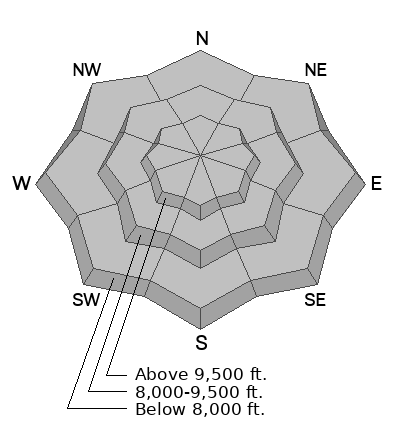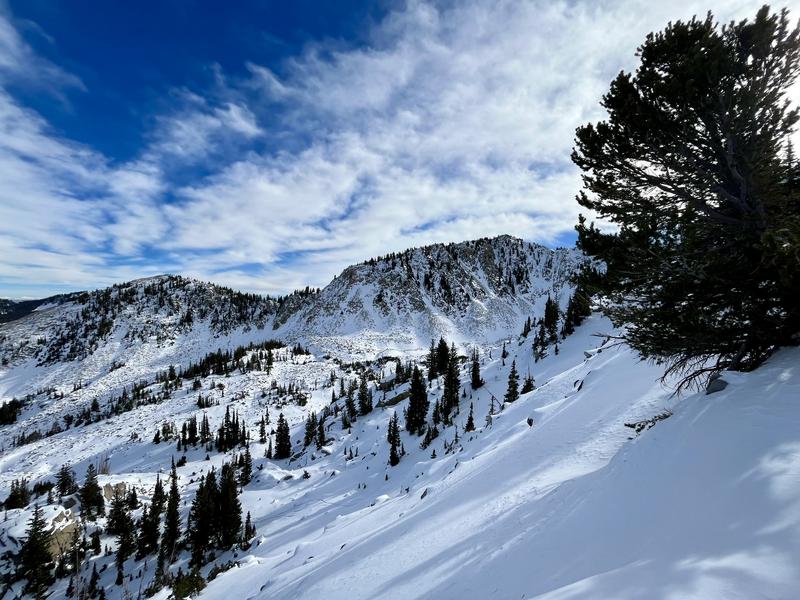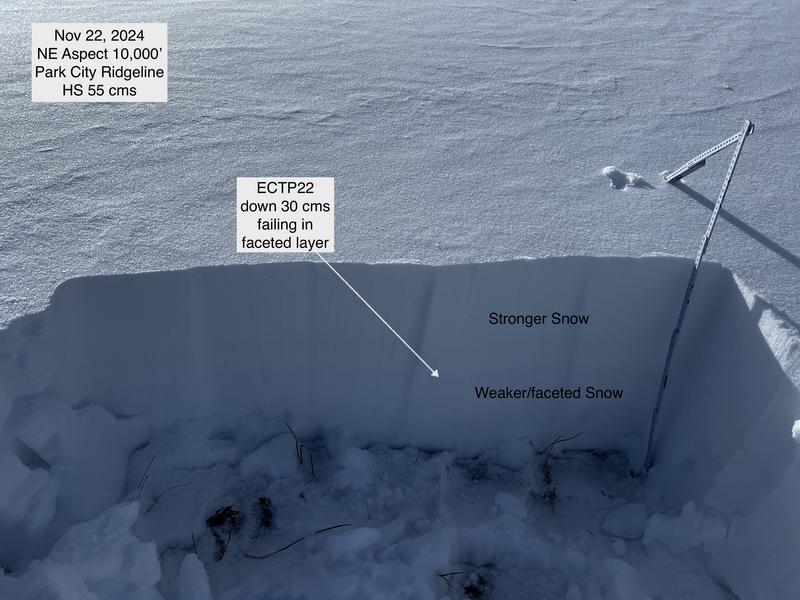There is 1 - 2.5' of snow on northerly slopes in the upper Cottonwoods, with depths over 3' on isolated, wind-loaded slopes at the upper elevations. There is 1 - 1.5' of snow on northerly slopes along the Park City Ridgeline.
Saturday - Winds will be from the south/southwest gusting near 30 mph at the mid elevations and over 60 mph at the uppermost elevations ahead of a storm on later Saturday evening. Snowfall could be heavy overnight Saturday into Sunday morning, with snow totals exceeding a foot in the upper Cottonwoods by mid-day Sunday.
Sunday - Slowly clearing skies with snow showers ending during the morning. A brief break with more snow possible on Tuesday.
Photo from Twin Lakes Pass (McKinley Talty photo]
On Friday,
I traveled along the Park City Ridgeline where I found 1 - 1.5' of snow on aspects facing northwest/north/northeast. UAC Education Manager
McKinley Talty traveled in upper Little Cottonwood Canyon and focused on aspects facing west and east where he also found some weak faceted snow. Many observers and UAC staff have been finding
weak snow on aspects facing west through north and east. With wind and snow in the forecast for this weekend, we may see avalanches breaking down into these weaker layers on aspects facing west/north/east.
The photo below shows the current snowpack structure with weak snow down near the ground.
Check out all recent observations and avalanches
HERE.











